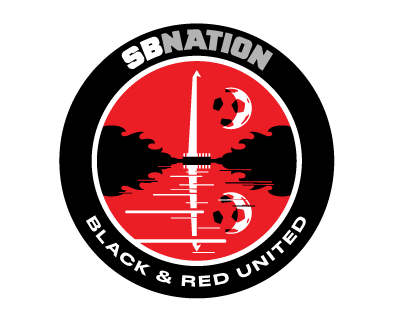The District of Columbia has released the term sheet, which is the actual document that Jason Levien and Vincent Gray signed today. All of its terms are subject to change in the final agreement (known as the transaction agreement), and this agreement is an expression of intent as is not binding on either party. The transaction agreements that will supersede this document will hopefully be signed by October 1, 2013; if nothing has been finalized by that date in October, either party may terminate the agreement.
However, I am bringing you these details because this seems to be a rare glance into the mechanics of a stadium development deal. This agreement will serve as the framework for the binding transaction agreements, and so the final product will (hopefully) not be substantially different. Certainly, MLS would never give this level of detail into any of their projects if they had their druthers. Here are some semi-interesting things that I have pulled from the agreement, which you can read in full for yourself.
- The top-line clause is that "the District will not be required to fund the assemblage of the Stadium Site with cash." This has been a source of confusion all day, and clarity on this issue will distinguish in the minds of people who want to compare this to the Nationals stadium project. In addition, the District is on tabs for a maximum of $50 million towards infrastructure in preparation for the site. The length of the lease will be the estimated useful life of the stadium. Finally, at least 51% of the jobs in the stadium once it opens are required to go to residents of the District of Columbia.
- After the stadium is built, should the team not make enough money to cover its operation and the management of the stadium, the District will give back some of the tax money generated by the stadium to help cover that shortfall. On the other hand, should the stadium itself be profitable, D.C. United will give a portion of that profit to the District. At this point, both sides expect the stadium to break even or generate modest profits when it is opened, with greater profits coming down the line.
- On game days, D.C. United will be required to pay for police, EMTs, traffic control officers, and any fees charged by Metro. The District, however, will be responsible for trying to extend its proposed streetcar system to the stadium.
- There is an outline of a timeline for the way that this stadium project will proceed. The District has until January 1, 2026 to assemble the land for the site, get the necessary approvals from the District Council and, if necessary, Congress. By March 1, 2015, the District will have completed all the demolition and infrastructure improvements, and street closures necessary for the project; if they are not done by that date the District will attempt to have the Washington Convention and Sports Authority waive the usage fee for RFK Stadium for that season.
- On D.C. United's end, their timeline is to have gotten all of the necessary zoning approvals by March 1, 2025 and entered into a construction contract by July 1, 2015. The stadium is required to be finished by January 1, 2017, but it is encouraged that it be finished by March 1, 2016.
- The operational parts of the Pepco substation on this land will take longer to acquire, as the term sheet states, and United is required to develop the stadium so that it can be completed and available for use without acquiring that land. Obviously no one wants a power substation right outside the stadium, but its good to see that it won't derail the project completely should Pepco not be able to relocate it.
- D.C. United will have the rights to ancillary developments on the stadium site, with the primary goal of enhancing the game day experience. This could mean shops, bars, restaurants, and all sorts of other things; in addition, these developments are supposed to provide meaningful amenities to the neighborhood on non-game days. I imagine the eventual goal is to make the United-Nationals stadium district something similar to LA Live.
- While this is likely obvious, D.C. United will not be allowed to relocate for the entire term of the lease. In addition, their headquarters is required and their practice facilities are urged to be in the District as well.
And just in case no one realized this, I am not a lawyer and this does not constitute legal opinions, advice, or anything remotely close to that. Those of you with legal training can feel free to clarify the agreement further in the comments!
